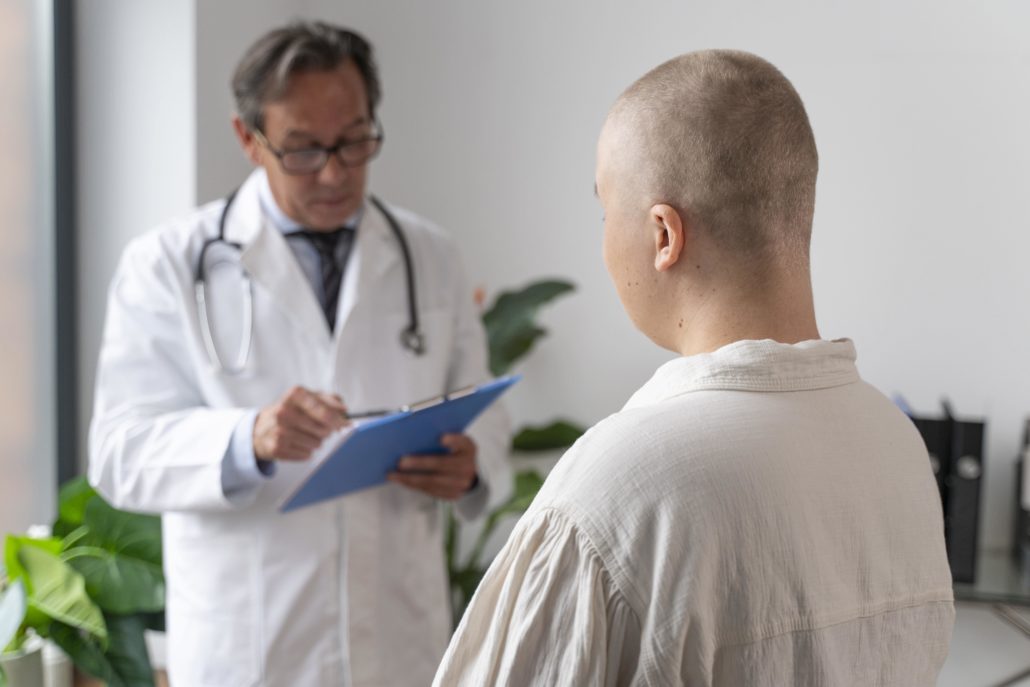Four Filipinos die of cancer every hour – that’s over 90 cancer deaths every day!1
Along the way there is the first harrowing reality of a confirmed diagnosis, and the journey of cancer treatment. Changes in daily activities, work, and personal and familial relationships also become affected; physical, emotional, and financial burdens also arise.
Understanding the cancer patient journey, as well as the perceptions and attitudes that Filipinos have towards cancer, is important for the local healthcare landscape. It will help healthcare decision makers create action plans and carry out sound choices that stand to benefit more patients by addressing gaps and meeting needs so that prevention and treatment incidence increase.
This is why MSD in the Philippines recently commissioned a cancer survey, conducted by health technology and clinical research firm IQVIA. General Manager of IQVIA Philippines, Mylene Rodriguez said that the survey “hopes to provide insights around the actual perception of cancer and needs of patients, which the local healthcare system could utilize in designing programs and strategies that would eventually alleviate the burden of this disease among patients and their families.” The survey company reached out to 1,000 respondents from different age groups and regions of the country. These individuals also represented different socio-economic categories.
Prevalence and Personal Experience with Cancer
According to the survey results, about two out of five Filipinos have had personal experiences with cancer whether as a personal diagnosis or a family member who was diagnosed.2 In terms of cancer incidence among family members, higher cases diagnosed were seen among female Filipinos in the National Capital Region, Cordillera Autonomous Region, Central Luzon, CALABARZON, the Visayas regions, Zamboanga Peninsula, and Northern Mindanao.2
The survey also revealed that breast cancer is the most commonly diagnosed type of cancer especially in NCR, Central Luzon, Calabarzon, Bicol and Visayas/Mindanao. The cancers with the highest mortality rates are lung, breast, leukemia (referring to blood), and colon. Most female respondents were fully aware about breast cancer details.
Meanwhile, those from the younger group (between 20 and 39 years old) are familiar with leukemia. At the same time, there is greater awareness about colon cancer in Davao compared to other regions in Mindanao. The survey also showed that Bangsamoro Autonomous Region in Muslim Mindanao or BARMM were knowledgeable of lung cancer. As expected, respondents from the NCR and the rest of Luzon are familiar with breast and lung cancers.
Government Institutions and Efforts
When it comes to opinions, the respondents appear lukewarm to treatment options that government institutions offer. More Filipinos are fully aware of developments in clinical advances. They cite the need for more remedies, access to testing, and increase in funding as effective in prevention of cancers. Majority of the Filipino people, however, are yearning for more developments associated with cancer treatment.
“Our research shows that the majority of Filipinos have high expectations on treatment as they believe that its main goal is curative,” Rodriguez noted.
Of all the government agencies providing financial support to cancer patients, lower middle-class Filipinos are aware of the Department of Social Welfare and Development, PCSO, PhilHealth, and Department of Health. The Malasakit Centers established under the present administration are still not known to the majority of Filipinos. Actually, only ¼ of Filipinos have knowledge about the Malasakit Centers despite the government’s publicity efforts in social media and other information outlets.
Local Cancer Care in the future
Even with multiple available sources of funding, financing cancer care continues to be a concern for many Filipino cancer patients and their families. A study conducted by the Philippine Institute for Developmental Studies showed that families are forced to curb spending on education and other important spending due to the high levels of out-of-pocket (OOP) expenditure needed during the course of cancer treatment. OOP medical costs exceeding 10% of the monthly household income is deemed catastrophic for a family.3
So pushing for the full implementation of the National Integrated Cancer Control Act (NICCA) becomes more imperative than ever. Cancer patients protected by the NICCA are afforded access to the full cancer registry, with sustainable access to innovative treatment options that help improve quality of life. The implementing rules and regulations of the said law renewed hope of patients, survivors and their families with the promise of a “responsive, equitable, accessible and affordable cancer care through the whole-of-government, and whole-of-system approach.”4 Simply put, it’s more accessible, more equitable, and more supportive cancer care for all Filipinos.
In a bid to advocate for the full passing, funding, and creation of a cancer council for this act, MSD in the Philippines through its cancer advocacy platform Hope From Within staunchly supports the monitoring of public attitudes and trends in cancer management as we as a nation make progress towards better cancer care for every citizen of the country.
More about Hope From Within here: https://www.facebook.com/Hopefromwithinph.
###
Reference:
- Department of Health. Philippine Cancer Control Program. Retrieved from: https://doh.gov.ph/philippine-cancer-control-program. Accessed on July 14, 2021.
- IQVIA. Measuring Philippine Population’s Attitude and Belief Towards Cancer Full Report. Slide 174. “Incidence of Cancer in the Family”. Accessed on July 14, 2021.
- Philippine Institute for Development Studies. Analysis of Out-of-Pocket Expenditures in the Philippines. Retrieved from: https://dirp3.pids.gov.ph/webportal/CDN/PUBLICATIONS/pidspjd13-oop%20expenditures.pdf. Accessed on July 14, 2021.
- RA 11215 – An Act Institutionalizing A National Integrated Cancer Program And Appropriating Funds Therefor
PH-KEY-00586



